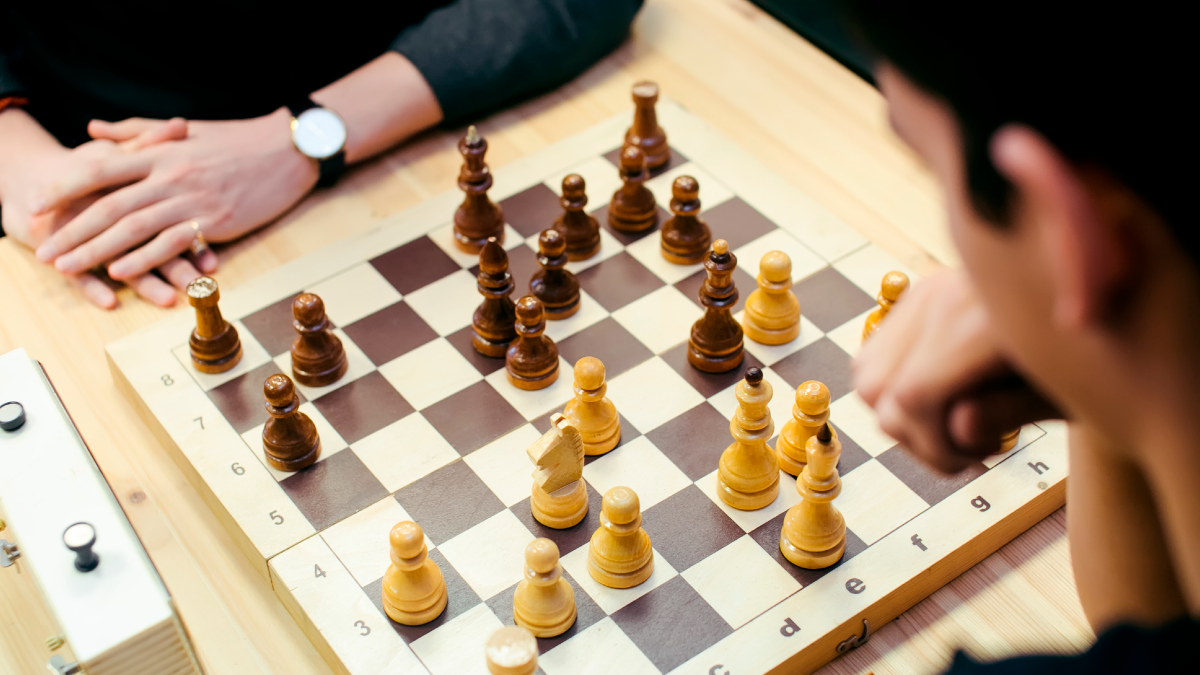
Quite often
after a serious amount of time of regular training sessions, some people still
struggle to show better results at tournament practice. How is it possible, one
may think, after studying so much to still perform poor and sometimes even
worse than before training periodically? It can sound strange but this scenario
is not rare at all. Chess is a complex game and the victory lies in many
factors; some can be trained and others you only learn how to deal with when
you grow a more mature mindset.
Psychology plays an important part in the chess battle. I often tell my students that they learn at home, in our lessons, but at the board, they must compete, not learn.
What does this mean exactly?
In my
opinion, the best competitor is one who can solve difficult problems. It is
easier to say it than to do it, that’s why in this article we have elaborated a
10 tips list with everything we feel it’s necessary to become a good
competitor.
1.
Confidence
You cannot do it if you think you can’t. You must be confident in your abilities. You have to trust your instincts and know that you can be capable of winning against strong opponents. The most effective way to improve your confidence is by studying.
When you do
the work, you can rest assured you have the tools necessary to obtain a
positive result.
2.
Lose the pressure
Try always to give your best. Regardless of the result of the game, it will be a good game if you have put into it everything you got. Learn from your mistakes, but also accept that even if you make one, your opponent will most probably make some too.
Play
relaxed.
3.
Play the opponent
Be flexible in your thinking and your approach to the game. Study well your opponent and adapt to exploit his weaknesses in the best possible way.
To do that
you may have to not play your favourite opening, but don’t let it be an
obstacle; see it as a challenge.
4.
Take controlled risks
There is less reward in the safety path. To be able to take risks is one of the main characteristics of a good competitor.
Assume risks
in order to present bigger problems to your opponent.
5.
Avoid being predictable
When a player uses the same opening round after round without any deviation in his systems it means that he is an expert and it will be difficult to find holes in his openings. However, there is a huge downside to this approach in modern chess. It is too easy now to prepare sharp lines; there are drawing lines almost against anything.
Try to have
at least 3-4 systems available so your opponent has much more trouble when preparing
against you.
6.
Keep a positive mind
Trouble is inevitable. Not seeing things clear will happen at some point during the game. It is important to not let emotions ruin your thinking process. Keep calm, take a breath and look for options.
There are always
chances, at least most of the time.
7.
Be practical
Remember
that you are not doing a super scientific test. It is only a game. Try to
manage your time wisely and make as many good decisions as you can. Avoid
looking for perfection in every move and consuming lots of time; it often leads
to time trouble and negative results.
8.
Do not underestimate your opponent, never!
Possibly one of the worst things you can do at the board is to underestimate the abilities of your opponent. Maybe a long time ago this was acceptable, but not today.
We can see
upsets in every tournament, which means that ratings alone do not win games.
Take your opposition seriously and give your best effort.
9.
Learn to recompose yourself after a loss
Essential. Win or lose, don’t let the result affect you for the next game and the next after that. It is a different day and a different opponent; a new beginning.
Another opportunity to show some good chess. Do not be negative because you lost the round before or even worse, do not fear another loss.
What doesn’t
kill you makes you stronger.
10.Learn from your mistakes
Reinvent
yourself every day. Fix your weaknesses and work on your strengths. Chess
mastery is a long journey so it is best to enjoy it and work hard.